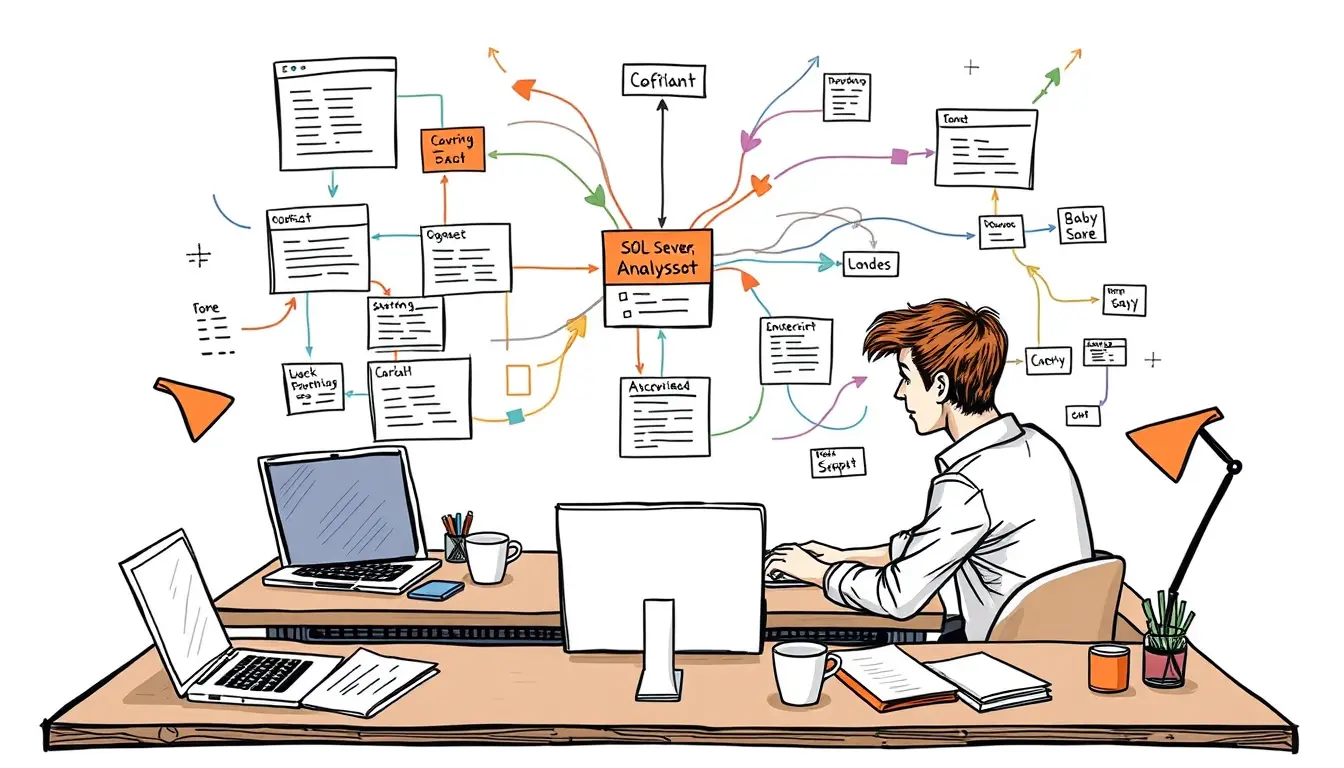Business Analysis: A Key Factor in Achieving ERP Implementation Success
Business analysis plays a crucial role in ensuring the success of an ERP implementation. By thoroughly understanding the business requirements and objectives, analysts can effectively align the ERP system with the organization’s goals. Through their expertise in analyzing existing business processes, they can identify the specific areas where ERP implementation is needed and devise strategies to streamline operations.
Furthermore, business analysis helps in evaluating stakeholder needs and requirements. By engaging stakeholders and understanding their perspectives, analysts can ensure that the implemented ERP solution meets their expectations. The use of various business analysis techniques allows for the thorough evaluation and selection of the most appropriate ERP solution for the organization’s unique needs. This ensures that the implemented system not only addresses current requirements but also has the scalability to support future growth. In this way, business analysis acts as a critical bridge between the technical aspects of ERP implementation and the strategic goals of the organization.
Understanding the Importance of Business Analysis in ERP Implementations
Effective implementation of an Enterprise Resource Planning (ERP) system is a crucial undertaking for any organization. The success of an ERP implementation depends heavily on understanding the importance of business analysis. Business analysis serves as the cornerstone for identifying the needs and objectives of the implementation, as well as evaluating existing processes to determine the necessity of the ERP solution.
In the realm of ERP implementations, business analysis plays a pivotal role in aligning stakeholder needs and requirements. By thoroughly analyzing the current state of the organization, business analysts can gather valuable insights to bridge the gap between business processes and the capabilities offered by the ERP system. This ensures that the selected ERP solution addresses the unique needs of the organization, maximizing the potential for successful implementation. Additionally, business analysis enables organizations to develop a comprehensive plan for the ERP implementation, outlining key milestones and strategies that will drive the process forward. With the support of business analysis, organizations can confidently embark on their ERP journey, equipped with a clear understanding of how the solution will revolutionize their business processes.
Identifying the Scope and Objectives of an ERP Implementation through Business Analysis
Identifying the scope and objectives of an ERP implementation is a crucial step in ensuring the success of the project. Through business analysis, organizations can gain a clear understanding of the specific needs and goals that an ERP implementation should address. By conducting a thorough analysis of existing business processes, stakeholders, and requirements, companies can identify areas that could benefit from an ERP solution.
Business analysis helps uncover inefficiencies and bottlenecks within organizational processes, enabling companies to determine the scope of the ERP implementation. This involves identifying the key functions and activities that will be included in the ERP system, as well as establishing the boundaries and limitations of the project. By defining the scope, organizations can stay focused on specific objectives and avoid unnecessary complexity and scope creep during the implementation process. Moreover, business analysis helps establish measurable goals and objectives for the ERP implementation, ensuring that the project aligns with the strategic vision of the company.
Analyzing Existing Business Processes to Determine the Need for ERP Implementation
In order to determine the need for ERP implementation, analyzing existing business processes is crucial. This involves examining the current workflows, systems, and procedures within an organization to identify any inefficiencies or areas for improvement. By conducting a comprehensive analysis, businesses can gain a deeper understanding of their existing processes and pinpoint specific pain points that could be addressed through the implementation of an ERP system.
During this analysis, it is important to involve key stakeholders from various departments within the organization. This ensures that all perspectives and requirements are taken into consideration, and that any potential issues or barriers to success are identified early on. By collaborating with these stakeholders, business analysts can gather valuable insights and data that allows them to accurately assess the need for an ERP system. Additionally, this collaborative approach helps to foster a sense of ownership and buy-in from employees, increasing the likelihood of a successful implementation.
Evaluating Stakeholder Needs and Requirements with Business Analysis in ERP Implementations
In any ERP implementation, understanding and evaluating the needs and requirements of stakeholders is crucial for success. However, this process can be complex and multifaceted. By employing business analysis techniques, organizations can effectively gather and analyze data, enabling them to identify stakeholders, understand their unique needs, and define clear requirements for the ERP system.
During the evaluation phase, business analysts play a vital role in engaging with key stakeholders across different departments and hierarchies. They gather information through interviews, surveys, and workshops to gain a deep understanding of the organization’s goals, challenges, and opportunities. This comprehensive analysis allows them to capture a wide range of stakeholder needs, from executives seeking strategic decision-making capabilities to front-line employees who require streamlined processes for increased efficiency. By actively involving stakeholders in this evaluation process, organizations can foster engagement, ownership, and ultimately, successful adoption of the ERP solution throughout the entire organization.
• Business analysis techniques are essential for understanding and evaluating stakeholder needs in ERP implementations
• Engaging with key stakeholders across departments and hierarchies is crucial during the evaluation phase
• Gathering information through interviews, surveys, and workshops allows business analysts to gain a deep understanding of organizational goals, challenges, and opportunities
• This comprehensive analysis captures a wide range of stakeholder needs, from executives to front-line employees
• Involving stakeholders in the evaluation process fosters engagement, ownership, and successful adoption of the ERP solution
Leveraging Business Analysis Techniques to Select the Right ERP Solution
Leveraging business analysis techniques is crucial in selecting the right ERP solution for an organization. By conducting a thorough analysis of the company’s needs and requirements, business analysts can identify the specific functionalities and features that the ERP system should possess. This analysis is typically done by gathering input from various stakeholders, such as department heads, managers, and end-users, to ensure that all perspectives are considered during the selection process.
Once the needs and requirements are identified, business analysts can create a comprehensive list of criteria that the ERP solution should meet. This list may include factors such as cost, scalability, user-friendliness, and integration capabilities. By analyzing the available options against these criteria, organizations can make an informed decision about which ERP solution aligns best with their unique business needs. Leveraging business analysis techniques in the selection process allows companies to maximize the value they can achieve from their chosen ERP solution, ensuring a successful implementation and long-term success.
Utilizing Business Analysis to Develop a Comprehensive ERP Implementation Plan
To develop a comprehensive ERP implementation plan, it is crucial to leverage business analysis techniques that can help organizations identify the key requirements and objectives of the project. Business analysis plays a pivotal role in understanding the existing business processes and determining the scope of the ERP implementation. By conducting a thorough analysis, organizations can identify areas that need improvement and align their implementation plan accordingly. This includes evaluating stakeholder needs and requirements, such as understanding the specific functionalities and features desired in the ERP solution. Through business analysis, organizations can ensure that the chosen ERP solution meets their business goals and objectives.
Furthermore, business analysis helps in mitigating risks and challenges associated with ERP implementations. By analyzing the potential risks and challenges that might arise during the implementation process, organizations can develop strategies to minimize their impact. Business analysis also aids in ensuring effective change management throughout the implementation phase. It allows organizations to assess the impact of the ERP implementation on various stakeholders and devise change management plans to address any resistance or issues that may arise. By utilizing business analysis, organizations can develop a comprehensive ERP implementation plan that is tailored to their specific needs, mitigates risks, and facilitates effective change management.
Mitigating Risks and Challenges with the Help of Business Analysis in ERP Implementations
One of the key benefits of business analysis in ERP implementations is the ability to identify and mitigate risks and challenges. Implementing an ERP system can be a complex and challenging process, and without proper analysis, organizations may face a multitude of issues. By conducting a thorough analysis of business processes, systems, and stakeholder needs, businesses can identify potential risks and challenges that may arise during the implementation phase.
One common challenge in ERP implementations is the resistance to change from employees. Adopting a new system often requires employees to learn new processes and ways of working, which can be met with resistance. Through business analysis, organizations can identify potential areas of resistance and develop effective change management strategies. This may include providing comprehensive training programs, engaging with employees early in the process, and clearly communicating the benefits of the new system. By addressing these challenges proactively, organizations can increase the likelihood of a successful ERP implementation.
Ensuring Effective Change Management through Business Analysis in ERP Implementations
Effective change management is crucial for the success of ERP implementations. Without proper planning and execution of change management strategies, organizations risk facing resistance, low employee engagement, and ultimately, failure in achieving the desired outcomes from their ERP systems. This is where business analysis plays a vital role in ensuring smooth and effective change management.
Through business analysis, organizations can identify the areas within the business that will be impacted by the ERP implementation and analyze the potential risks and challenges associated with these changes. By involving key stakeholders and conducting detailed analysis, organizations can gain a deeper understanding of the drivers for change, the impact on processes and roles, and the required training and support needed for employees during the transition. With this information, organizations can develop comprehensive change management plans that address the specific needs of the organization and its employees, ensuring a smoother and more successful ERP implementation.
Measuring Success and Continuous Improvement in ERP Implementations with Business Analysis
Measuring the success of an ERP implementation is crucial for organizations to evaluate if the system has achieved its intended objectives and delivered the expected benefits. Business analysis plays a pivotal role in this process, as it provides the necessary tools and techniques to assess the effectiveness of the implementation. By conducting post-implementation reviews and analyzing key performance indicators, businesses can gain valuable insights into the performance of their ERP system.
Business analysis also enables organizations to identify areas of improvement and implement continuous enhancements to optimize the use of the ERP solution. Through analyzing user feedback, conducting satisfaction surveys, and monitoring system usage, businesses can identify pain points, gaps, and bottlenecks in their ERP implementation. This information can then be used to drive process improvements and guide decision-making for future enhancements to the system. By leveraging business analysis techniques, organizations can ensure that their ERP implementation remains aligned with their evolving business needs and continues to deliver value in the long term.
What is the role of business analysis in ERP implementations?
Business analysis plays a key role in achieving ERP implementation success by identifying the scope and objectives of the implementation, analyzing existing business processes, evaluating stakeholder needs and requirements, selecting the right ERP solution, developing a comprehensive implementation plan, mitigating risks and challenges, ensuring effective change management, and measuring success and continuous improvement.
How does business analysis help in understanding the importance of ERP implementations?
Business analysis helps in understanding the importance of ERP implementations by identifying the areas where ERP can bring value and improve business processes. It helps in assessing the current state of the business, identifying opportunities for improvement, and aligning the implementation with the strategic goals of the organization.
How does business analysis determine the need for ERP implementation?
Business analysis analyzes existing business processes to determine the need for ERP implementation. It assesses the efficiency and effectiveness of current processes, identifies pain points and bottlenecks, and determines whether an ERP solution can address the identified issues and provide a better way of operating.
How does business analysis evaluate stakeholder needs and requirements in ERP implementations?
Business analysis evaluates stakeholder needs and requirements by conducting interviews, workshops, and surveys to gather input from key stakeholders. It analyzes their needs, expectations, and pain points to ensure that the selected ERP solution meets their requirements and aligns with their business objectives.
How does business analysis help in selecting the right ERP solution?
Business analysis leverages various techniques such as needs analysis, vendor evaluation, and cost-benefit analysis to select the right ERP solution. It considers factors like functionality, scalability, integration capabilities, vendor reputation, and total cost of ownership to make an informed decision.
How does business analysis contribute to developing a comprehensive ERP implementation plan?
Business analysis utilizes its understanding of the organization’s processes, goals, and stakeholders’ needs to develop a comprehensive ERP implementation plan. It identifies project milestones, resource requirements, timelines, and dependencies to ensure a smooth and successful implementation.
How does business analysis mitigate risks and challenges in ERP implementations?
Business analysis identifies potential risks and challenges in ERP implementations through risk assessment and analysis. It then develops mitigation strategies, contingency plans, and change management approaches to address these risks and challenges and minimize their impact on the implementation.
How does business analysis ensure effective change management in ERP implementations?
Business analysis ensures effective change management in ERP implementations by conducting stakeholder analysis, developing communication and training plans, and facilitating organizational readiness assessments. It helps in managing resistance to change and ensures that the organization is prepared for the transition to the new ERP system.
How does business analysis measure success and continuous improvement in ERP implementations?
Business analysis measures success and continuous improvement in ERP implementations by defining key performance indicators (KPIs) and metrics to track the impact of the implementation on business processes, efficiency, and stakeholder satisfaction. It conducts post-implementation reviews and gathers feedback to identify areas for improvement and make necessary adjustments.














Leave a Reply